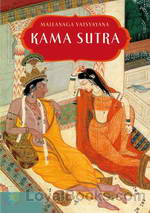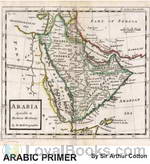|
Books Should Be Free Loyal Books Free Public Domain Audiobooks & eBook Downloads |
|
|
Books Should Be Free Loyal Books Free Public Domain Audiobooks & eBook Downloads |
|
Top Authors |
|---|
|
Book type:
Sort by:
|
By: Gaius Suetonius Tranquillus (c75 - c160 AD) | |
|---|---|
 The Lives of the Twelve Caesars
The Lives of the Twelve Caesars
The Twelve Caesars is a set of twelve biographies of Julius Caesar and the first 11 emperors of the Roman Empire. The work was written in 121 during the reign of the emperor Hadrian, while Suetonius was Hadrian’s personal secretary. On the Life of the Caesars concentrates on the acts and personalities of the Julio-Claudians and their immediate successors. Together with Tacitus’ Annals, this work is a major source for the historical details in Robert Graves’ novels “I Claudius” and “Claudius the God”. | |
 The Lives of the Twelve Caesars, Volume 01: Julius Caesar
The Lives of the Twelve Caesars, Volume 01: Julius Caesar
| |
 The Lives of the Twelve Caesars, Volume 08: Otho
The Lives of the Twelve Caesars, Volume 08: Otho
| |
 The Lives of the Twelve Caesars, Volume 11: Titus
The Lives of the Twelve Caesars, Volume 11: Titus
| |
 The Lives of the Twelve Caesars, Volume 09: Vitellius
The Lives of the Twelve Caesars, Volume 09: Vitellius
| |
 The Lives of the Twelve Caesars, Volume 07: Galba
The Lives of the Twelve Caesars, Volume 07: Galba
| |
 The Lives of the Twelve Caesars, Volume 14: Lives of the Poets
The Lives of the Twelve Caesars, Volume 14: Lives of the Poets
| |
By: Paul Allardyce (1855-1895) | |
|---|---|
 Stops, or How To Punctuate
Stops, or How To Punctuate
Throughout the ages, languages continue to adapt and change. English, being a relatively new language, is a nice example of that. Though the English vocabulary is continually evolving, the system of punctuation has remained constant for the most part. This means that grammar books from 1895 are still applicable today. Therefore, if the following sentence looks correct to you, perhaps listening to Paul Allardyce’s “Stops, or How to Punctuate” would be a good idea. | |
By: Mallanaga Vatsyayana | |
|---|---|
 The Kama Sutra
The Kama Sutra
The Kama Sutra, or Aphorisms on Love, has survived at least 1400 years as a dominant text on sexual relations between men and women. Vatsyayana claimed to have written the Kama Sutra while a religious student, “in contemplation of the Deity” - but references to older works, shrewd disputations by Vatsyayana of those authors' recommendations, and careful cataloging of practices in various of the Indian states indicate much more emphasis on kama, or sensual gratification. Part of the book discusses the 64 arts of love employed by masters of coitus... | |
By: Luís Vaz de Camões (1524-1580) | |
|---|---|
 The Lusiad or The Discovery of India, an Epic Poem
The Lusiad or The Discovery of India, an Epic Poem
| |
By: John Meade Falkner (1858-1932) | |
|---|---|
 Moonfleet
Moonfleet
The novel is set in a fishing village in Dorset during the mid 18th century. The story concerns a 15 year old orphan boy, John Trenchard, who becomes friends with an older man who turns out to be the leader of a gang of smugglers.One night John chances on the smugglers’ store in the crypt beneath the church. He explores but hides behind a coffin when he hears voices. He finds a locket which contains a parchment, in the coffin belonging to Colonel Mohune. Unfortunately after the visitors leave,... | |
 The Lost Stradivarius
The Lost Stradivarius
The Lost Stradivarius (1895), by J. Meade Falkner, is a short novel of ghosts and the evil that can be invested in an object, in this case an extremely fine Stradivarius violin. After finding the violin of the title in a hidden compartment in his college rooms, the protagonist, a wealthy young heir, becomes increasingly secretive as well as obsessed by a particular piece of music, which seems to have the power to call up the ghost of its previous owner. Roaming from England to Italy, the story involves family love, lordly depravity, and the tragedy of obsession | |
By: Martin Luther (1483-1546) | |
|---|---|
 The Large Catechism
The Large Catechism
Luther’s Large Catechism consisted of works written by Martin Luther and compiled Christian canonical texts, published in April of 1529. This book was addressed particularly to clergymen to aid them in teaching their congregations. Luther’s Large Catechism is divided into five parts: The Ten Commandments, The Apostles’ Creed, The Lord’s Prayer, Holy Baptism, and The Sacrament of the Altar. It and related documents was published in The Book of Concord in 1580. | |
 Commentary on St. Paul's Epistle to the Galatians
Commentary on St. Paul's Epistle to the Galatians
Martin Luther strove to give a verse by verse exegesis of the Epistle to the Galatians in the work. The original work, written in Latin in around 1516, was much longer. This translation by Theodore Graebner (1876-1950) strove to produce a copy of the work in a format and with wording much more applicable to the general English-speaking American public. | |
 The Small Catechism
The Small Catechism
Luther's Small Catechism (Der Kleine Katechismus) was written by Martin Luther and published in 1529 for the training of children. Luther's Small Catechism reviews The Ten Commandments, The Apostles' Creed, The Lord's Prayer, The Sacrament of Holy Baptism, The Office of the Keys & Confession, and The Sacrament of the Eucharist. It is included in the Lutheran Book of Concord as an authoritative statement of what Lutherans believe. The Small Catechism is widely used today in Lutheran churches as part of youth education and Confirmation. | |
 The Smalcald Articles
The Smalcald Articles
MANUAL OF SURGERY, OXFORD MEDICAL PUBLICATIONSBY ALEXIS THOMSON, F.R.C.S.Ed.PREFACE TO SIXTH EDITION Much has happened since this Manual was last revised, and many surgical lessons have been learned in the hard school of war. Some may yet have to be unlearned, and others have but little bearing on the problems presented to the civilian surgeon. Save in its broadest principles, the surgery of warfare is a thing apart from the general surgery of civil life, and the exhaustive literature now available on every aspect of it makes it unnecessary that it should receive detailed consideration in a manual for students... | |
 Martin Luther's 95 Theses
Martin Luther's 95 Theses
| |
 A Treatise on Good Works
A Treatise on Good Works
| |
 Martin Luther's Large Catechism, translated by Bente and Dau
Martin Luther's Large Catechism, translated by Bente and Dau
| |
 Martin Luther's Small Catechism, translated by R. Smith
Martin Luther's Small Catechism, translated by R. Smith
| |
 The Hymns of Martin Luther Set to their original melodies
The Hymns of Martin Luther Set to their original melodies
| |
 Commentary on Genesis, Vol. II Luther on Sin and the Flood
Commentary on Genesis, Vol. II Luther on Sin and the Flood
| |
 An Open Letter on Translating
An Open Letter on Translating
| |
 The Epistles of St. Peter and St. Jude Preached and Explained
The Epistles of St. Peter and St. Jude Preached and Explained
| |
 Epistle Sermons, Vol. III Trinity Sunday to Advent
Epistle Sermons, Vol. III Trinity Sunday to Advent
| |
By: Sir Arthur Cotton (1803-1899) | |
|---|---|
 Arabic Primer
Arabic Primer
“Languages”, Sir Arthur Cotton writes, “are usually learnt as if it took a long time to learn the grammar &c., but that to speak with a good pronunciation and expression, and freely, and to catch the words from a speaker by the ear were easily and quickly acquired, but this is exactly contrary to fact.” Cotton’s “Vocal system” differs from the traditional grammatical method of learning languages in that it emphasises the development of correct pronunciation and the gradual acquisition of correct expressions and vocabulary... | |
By: James Otis (1848-1912) | |
|---|---|
 Richard of Jamestown: A Story of the Virginia Colony
Richard of Jamestown: A Story of the Virginia Colony
Richard of Jamestown by James Otis was written for children with the purpose to show them the daily home life of the Virginia colonists. It is written from the viewpoint of a young boy named Richard Mutton. | |